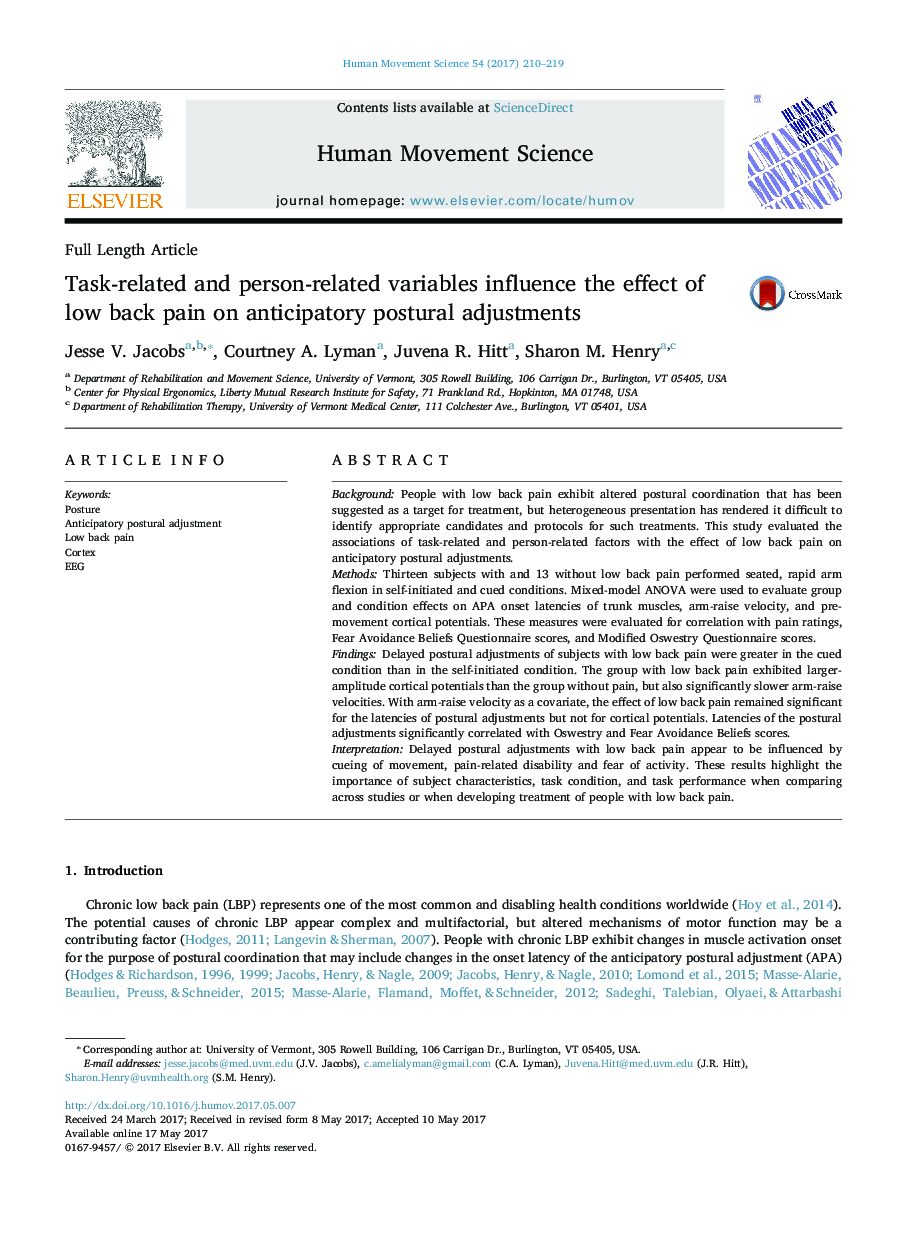| کد مقاله | کد نشریه | سال انتشار | مقاله انگلیسی | نسخه تمام متن |
|---|---|---|---|---|
| 5041980 | 1474211 | 2017 | 10 صفحه PDF | دانلود رایگان |
- Evaluated factors that influence the effect of low back pain (LBP) on posture.
- People with and without LBP performed rapid arm raises.
- Postural adjustments (APAs) more delayed in cued than self-initiated conditions.
- APA onset associated with reported disability and fear of physical activity.
- Effects of LBP on APAs influenced by task condition and disability status.
BackgroundPeople with low back pain exhibit altered postural coordination that has been suggested as a target for treatment, but heterogeneous presentation has rendered it difficult to identify appropriate candidates and protocols for such treatments. This study evaluated the associations of task-related and person-related factors with the effect of low back pain on anticipatory postural adjustments.MethodsThirteen subjects with and 13 without low back pain performed seated, rapid arm flexion in self-initiated and cued conditions. Mixed-model ANOVA were used to evaluate group and condition effects on APA onset latencies of trunk muscles, arm-raise velocity, and pre-movement cortical potentials. These measures were evaluated for correlation with pain ratings, Fear Avoidance Beliefs Questionnaire scores, and Modified Oswestry Questionnaire scores.FindingsDelayed postural adjustments of subjects with low back pain were greater in the cued condition than in the self-initiated condition. The group with low back pain exhibited larger-amplitude cortical potentials than the group without pain, but also significantly slower arm-raise velocities. With arm-raise velocity as a covariate, the effect of low back pain remained significant for the latencies of postural adjustments but not for cortical potentials. Latencies of the postural adjustments significantly correlated with Oswestry and Fear Avoidance Beliefs scores.InterpretationDelayed postural adjustments with low back pain appear to be influenced by cueing of movement, pain-related disability and fear of activity. These results highlight the importance of subject characteristics, task condition, and task performance when comparing across studies or when developing treatment of people with low back pain.
Journal: Human Movement Science - Volume 54, August 2017, Pages 210-219
